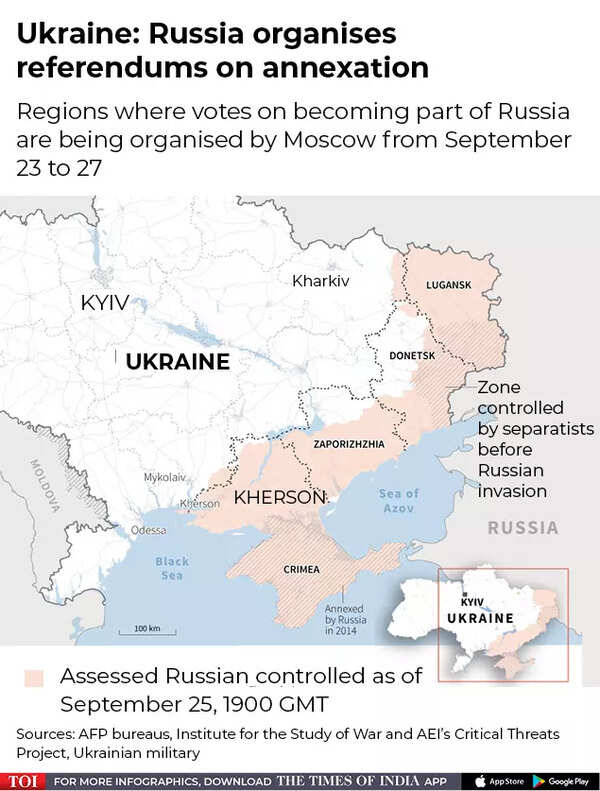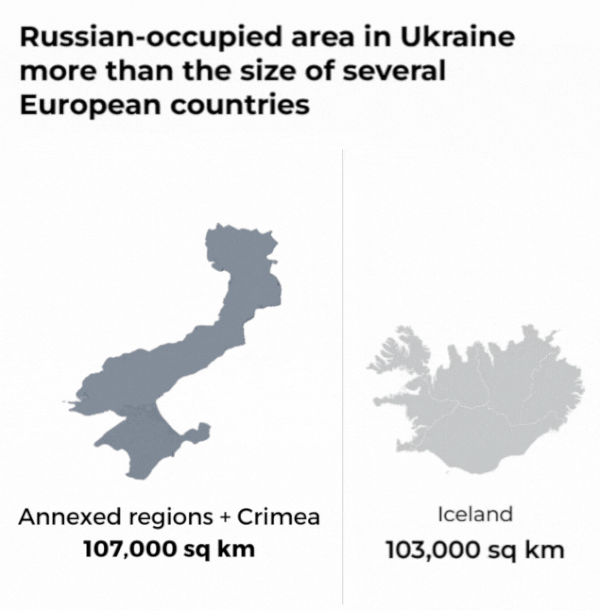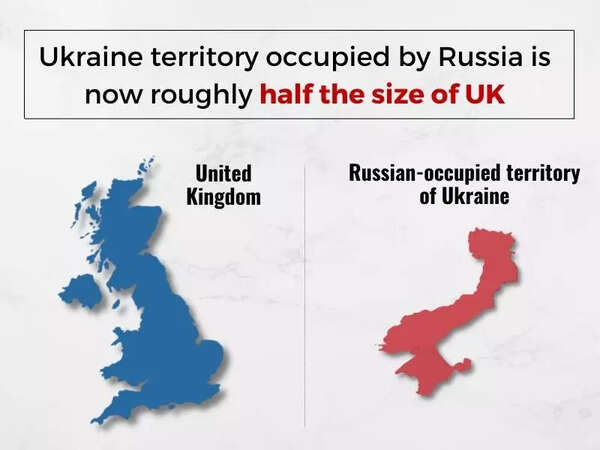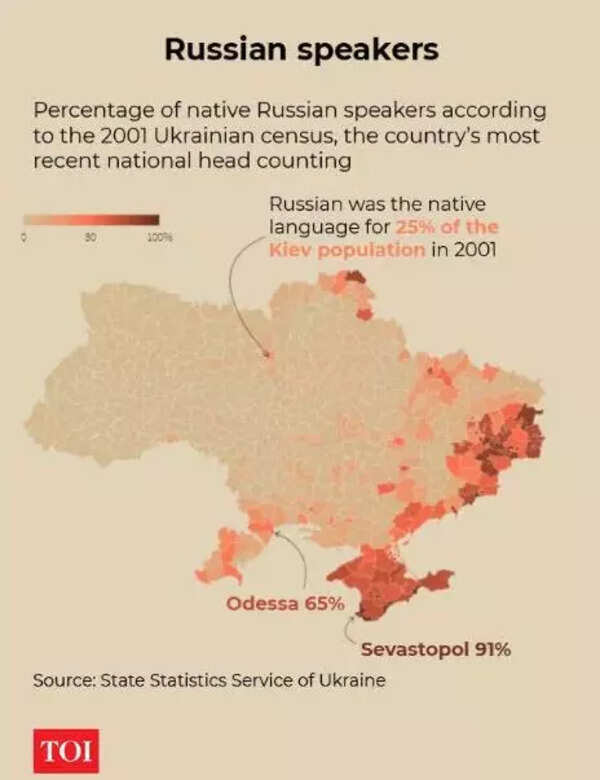Russian President Vladimir Putin presided over a ceremony at the Kremlin to annex Donetsk, Luhansk, Zaporizhzhia and Kherson regions of Ukraine.
‘Citizens forever’
“I want the Kyiv authorities and their real masters in the West to hear me. People living in Luhansk and Donetsk, Kherson and Zaporizhzhia are becoming our citizens. Forever. We call on the Kyiv regime to immediately end hostilities, end the war that they unleashed back in 2014 and return to the negotiating table. We are ready for this … But we will not discuss the choice of the people in Donetsk, Luhansk, Zaporizhzhia and Kherson. That has been made. Russia will not betray them.”
In a speech filled with hostility towards the West, Putin said the US had created a “precedent” by using nuclear weapons against Japan at the end of WWII. Fears of nuclear war have grown since Putin said last week he was “not bluffing” when he said Russia was prepared to use nuclear weapons to defend its territory.
He added that Russia would use “all the power and all the means” at its disposal to defend its new lands from attacks by the West or Ukraine.
Putin doubling down
The official annexation was widely expected following the votes that wrapped up on Tuesday in the areas under Russian occupation. Moscow claimed residents overwhelmingly supported that their areas should formally become a part of Russia.
Moscow’s annexation of the territory confirms that President Vladimir Putin is doubling down on his war against Russia’s neighbour despite suffering a major military reversal this month.
The West has denounced the referendums as “illegal and rigged”, saying they were clearly orchestrated by Kremlin. United Nations chief Antonio Guterres said it was a “dangerous escalation” that would jeopardise prospects for peace.
How much Ukrainian territory does Russia control
With the formal annexation of Kherson, Zaporizhzhia, Donetsk and Luhansk, nearly 15% of Ukraine’s territory will come under Russian control.

Notably, Russia does not fully control the regions since Ukraine forces have reclaimed some area that Moscow had earlier captured.
In terms of actual land area, Russia will control over 90,000 square kilometres (34,750 square miles) of Ukraine’s total area. This is roughly the size of countries like Portugal or Jordan.

If we also consider Crimea, which was annexed in 2014, Russia will control over 107,000 sq km of territory that once belonged to Ukraine.
This area is more than the size of several European countries such as Iceland, Portugal, Austria and Denmark.
It is also roughly half the size of the United Kingdom.

A little history of the region
In a recent speech, President Vladimir Putin had said his aim was to “liberate” the Donbas region, Ukraine’s industrial heartland, asserting that most people there did not want to return to what he called the “yoke” of Ukraine.
Before and during the war, Putin often brought up the emotive aspect of how the region shares long historical and cultural ties with Russia. He recognises all of Luhansk and Donetsk (which together make up Donbas) as independent of Ukraine.
After Russia’s annexation of Crimea, its proxy forces had captured more than a third of Ukraine’s east in a war that never came to an end.
Like the Crimean peninsula, Luhansk and Donetsk are regions where a particularly large proportion of the population speaks Russian and is ethnically Russian.

After the Orange Revolution of 2004, and the Maidan protests of 2013 and 2014, it was in these parts of Ukraine where the opposition to Ukraine turning more towards the West was strongest.
Russia’s move to swallow the four regions will now set the stage for Moscow to escalate the war following Ukrainian successes.
It will also give Putin a sense of achievement after the slow progress of the invasion and recent military setbacks due to a spirited defence put up by the Ukrainian forces.
(With inputs from agencies)






